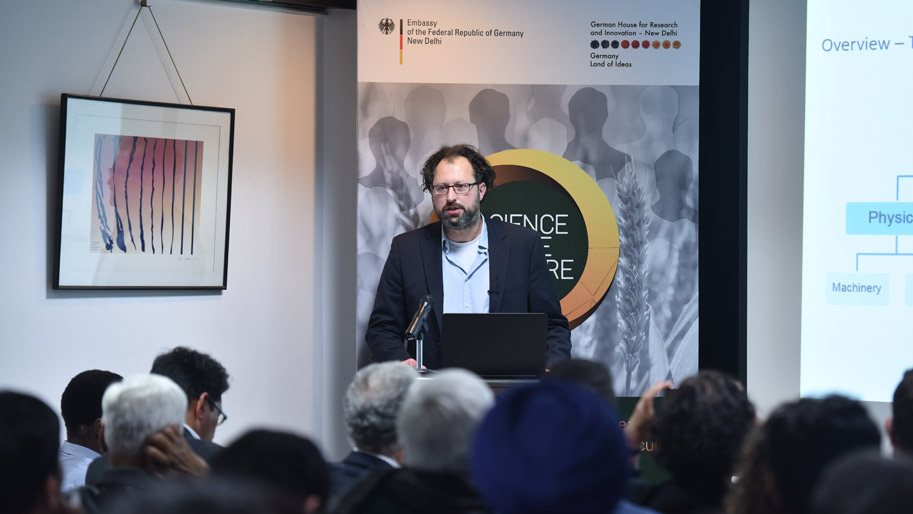Science Circle Lecture - "Revival of the Malthusian Threat? – The Importance of Innovation in Agriculture"
 © DWIH New Delhi
© DWIH New Delhi
by Prof. Dr. Johannes Sauer, Head, Chair for Agricultural Production and Resource Economics at Technical University Munich
Event Information
March 3, 2017
New Delhi
Organizer(s): DWIH - German Centre for Research and Innovation New Delhi
Prof. Dr. Johannes Sauer
Professor Sauer leads the Chair for Agricultural Production and Resource Economics at Technical University Munich (TUM) where he also heads the Research Department for Agricultural Economics and acts as Vice Dean at the Faculty of Life Sciences.
Before joining TUM, Professor Sauer held an endowed chair at the University of Kiel and prior to this he worked as senior lecturer and associate professor at Imperial College London, the University of Manchester and the University of Copenhagen. He has a degree in agricultural economics from Imperial College London and a degree in political science and economics from the Universities of Tübingen and Hamburg. He received his PhD (with Distinction) from the University of Bonn while working in parallel as a management consultant at PricewaterhouseCoopers (PwC). He has held several visiting positions at UC Davis, UC Berkeley, Princeton University, USDA and the OECD.
The research work of Professor Sauer spans the fields of production economics, natural resource economics and applied econometrics. He is expert advisor to the OECD productivity network, member of the UK ESRC Peer Review College and appointed Liaison Professor of the German National Academic Foundation.
Revival of the Malthusian Threat? – The Importance of Innovation in Agriculture
Since the dawn of agricultural cultivation about 10.000 years ago, our planet has seen an unprecedented growth in human population. Despite Malthus’ hypothesis (1798) that linear agricultural growth cannot keep pace with exponential population growth, both have in fact grown exponentially. The major reason for this development is innovation and the diffusion of technology and know-how in agriculture. In 2017, technological differences explain most of the agricultural and general income and productivity differences worldwide. How do new technologies evolve and, eventually, diffuse? Which factors explain adoption and non-adoption of promising inventions?
Over-consumption of resources and climate change dynamics, to which agriculture significantly contributes, challenge the centuries-old production conditions for farmers worldwide. This is particularly problematic in South Asia. As a result, there is constant pressure in the agricultural sector to innovate and invest as well as apply sustainable innovations. Climate-Smart Agriculture (CSA) is an innovative approach which aims to provide a universal solution to these challenges. Does it really work? And finally, what do we know about the adoption and diffusion of this approach in South Asia?
Event Report
Read the event report here.
